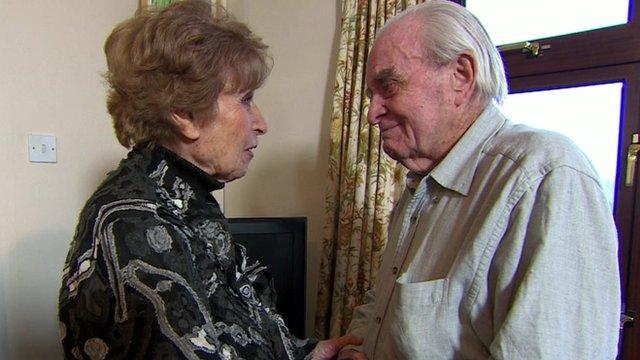Bergen-Belsen liberation: Tank driver John Darby recalls opening gates
- Published
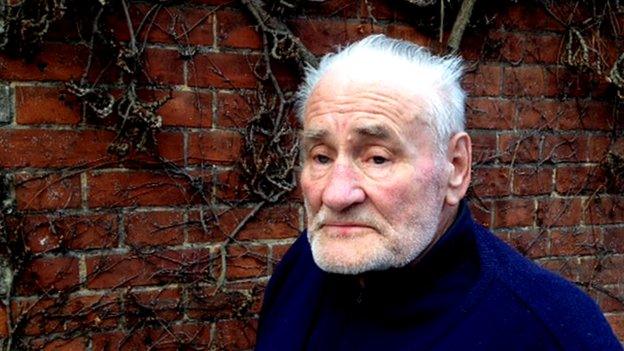
John Darby pushed open the gates to Bergen-Belsen with his Sherman tank
Seventy years ago British troops entered the German concentration camp of Bergen-Belsen. One of those to witness the horrors first hand was John Darby, who used his Sherman tank to open the gates. This is his story.
On 15 April 1945, shuffling along the road are a dozen or so German officers who, in fractured bursts of English, speak of "prison camp", "disease", "typhus".
John Darby is inside a Sherman tank, travelling in the opposite direction with the British Army's 11th Armoured Division.
The "prison camp" - now nearby - is Bergen-Belsen, near Hannover in Germany.
Inside are piles of rotting corpses and thousands of sick and starving prisoners, kept in severely overcrowded and dirty compounds.
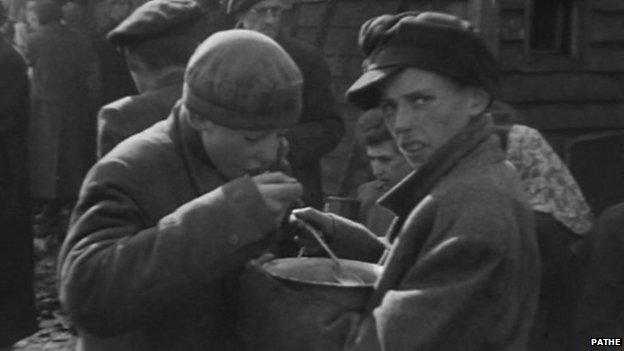
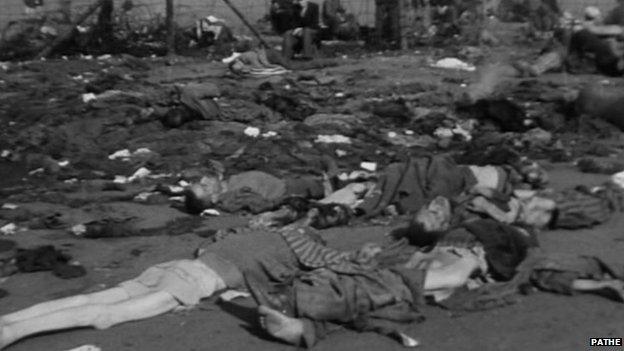
Mr Darby, now 86 and living in the Suffolk market town of Bury St Edmunds, was the first liberator in.
"I went up to the gates," he said, "pushed them open with the tank.
"I was the first there to discover it.
"We knew it was a camp, but it wasn't an extermination camp - but people died and were piled up in beds and round and about like rotten logs of wood, which we could see at a distance.
"We saw young German troops were shooting at prisoners trying to climb over the wire fence, but our colonel started shooting them.
"I shot four. They were burning documents as fast as they could.
"I was standing there keeping an eye on the colonel, who was still shooting these Nazi youth, when I felt something touch my leg.
"I saw a hand and then I saw a face appear and saw these eyes and said 'It's alright love, you're free now'.
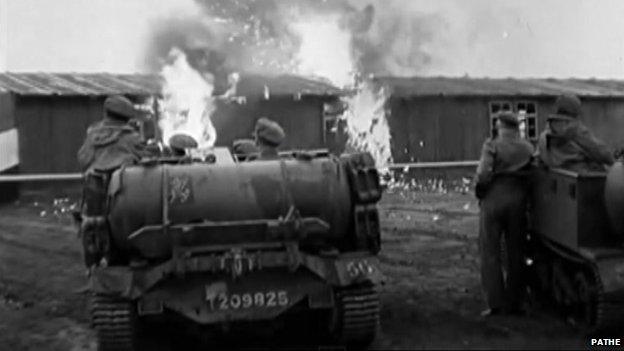
"I didn't go any further and radioed the Red Cross medics and when they arrived we were told to move on.
"There weren't a lot of Germans left in the camp, but a lot of them were hung there eventually, I think.
"I cried and I've never forgotten it.
"I tried not to talk about it after the war, but 20 years later I exploded one night - I went potty and didn't know what the heck was happening.
"I went to see the doctor and he said I'd got to talk about it, to get better."

Bergen-Belsen
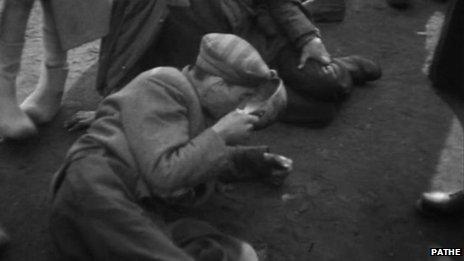
Bergen-Belsen was the only concentration camp taken by the British and the soldiers were unprepared for what they found there. In fact most of the details did not appear in the media until a couple of days after the liberation when the first medical team arrived
Mass graves were dug to hold up to 5,000 corpses at a time. The former army guards from the SS were deliberately made to use their bare hands to bury the prisoners, many of whom had died of contagious diseases
The mass evacuation of the camp began on 21 April. Prisoners with any hope of survival were moved to an emergency hospital
British medical students responded to an appeal from the Ministry of Health to go to Germany and help in the treatment of prisoners
Photographs and a film taken at the camp and published in the media brought home the full horror of life in Belsen. German civilians living near to the camp were taken to see what had gone on inside
The last hut in the camp was burned to the ground on 21 May 1945. Today the camp is a landscaped park
Related topics
- Published15 April 2015
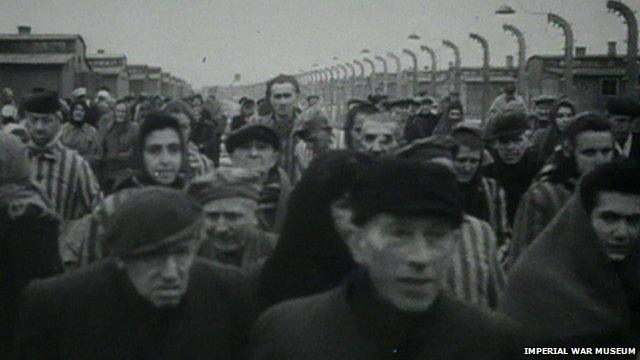
- Published10 April 2015
